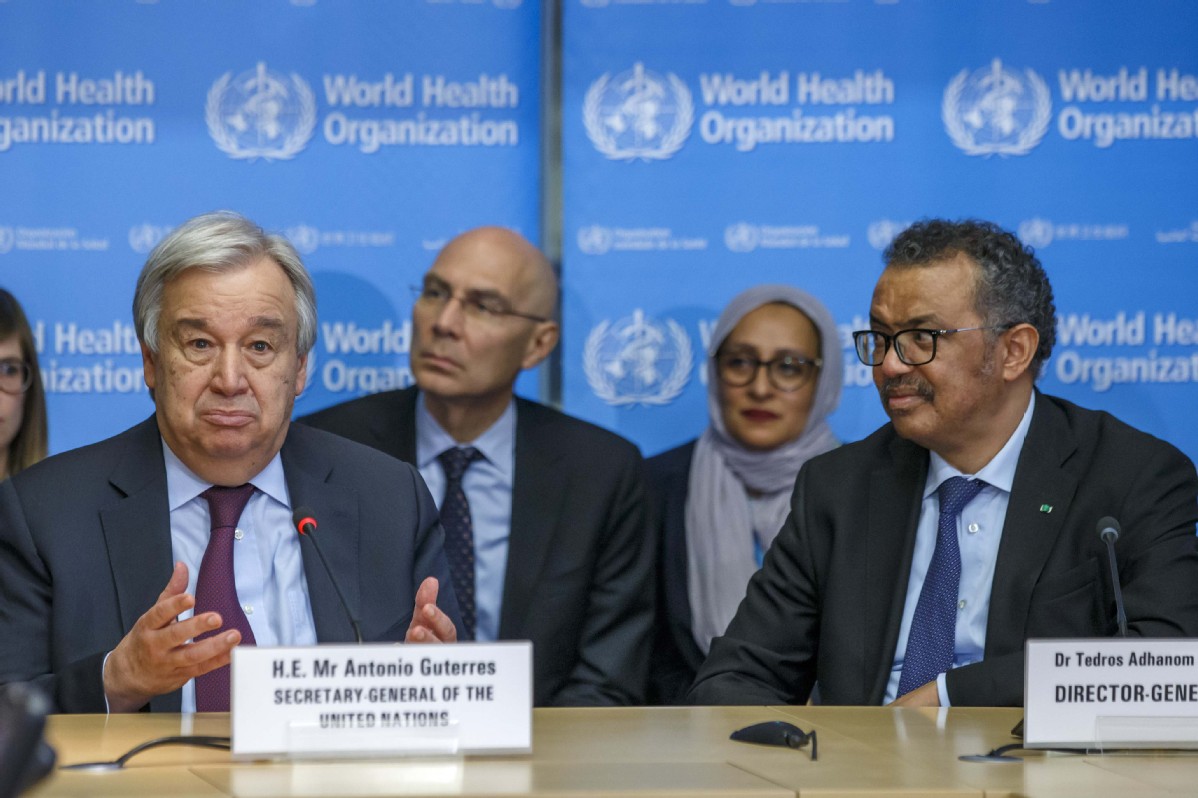Experts: Nation's prudent steps bring notable results






China's unprecedented public health responses to the novel coronavirus outbreak have yielded notable results in blocking human-to-human transmission of the virus, preventing or at least delaying hundreds of thousands of cases, said a joint team consisting of experts from China and the World Health Organization.
China has also played a crucial role in protecting the international community, buying precious time for countries to adopt active prevention and control measures and providing them with worthwhile experience, the 25-member team said at a news conference in Beijing on Monday after a nine-day field trip in China.
China is taking prudent, phased and orderly steps to gradually restore order in the social, economic, education and healthcare sectors, it said.
Noting that the novel coronavirus is a new pathogen, the team said more information is needed to better understand the transmission and severity of the disease, adding that global prevention and control work still faces severe challenges.
The team advised countries to take active monitoring measures, strive for early detection, diagnosis, quarantine and treatment, and closely trace and quarantine close contacts.
Countries with imported cases or seeing a surge of cases are advised to immediately activate national emergency plans to ensure that governments at every level take necessary intervention measures to block the spread.
Chinese and WHO experts also called on countries to strengthen the exchange of information on the outbreak and remain united to jointly deal with the challenges brought by COVID-19.
Bruce Aylward, senior adviser to the director-general of the WHO and head of the foreign expert panel, said China's measures such as mass isolation, shutting down transportation and mobilizing the public to abide by hygienic practices have proved effective in curbing a contagious and mysterious disease, especially since the whole of society is committed to the measures.
"This approach of all-of-government and all-of-society ... has averted and probably prevented at least tens of thousands, even hundreds of thousands, of cases," he said. "It is extraordinary."
Aylward said he was struck by the fact that in Wuhan, Hubei province, the epicenter of the outbreak, hospital beds are opening up and medical institutions have the capacity and space to receive and care for all patients for the first time since the outbreak began.
"I just thought it's so important that we recognize that to the people of Wuhan, it is recognized, the world is in your debt," he said.
Aylward added that the decline seen in China is real, saying "multiple sources of data have pointed that it is falling, and is falling because of the action that is being taken".
According to China's National Health Commission, daily new infections nationwide have been trending downward for more than a week.
Aylward said, "The only successful measure we know so far to contain the COVID-19 is in China."
Liang Wannian, a National Health Commission official and head of the Chinese expert panel, said one key understanding shared by all experts is that the explosive growth of new infections in Wuhan has been effectively curbed. But with over 400 new confirmed cases each day, containment measures must be maintained, with a focus on timely diagnosis and treatment, he added.
Liang said the virus's transmission capability may have surpassed that of many other pathogens, including the virus that causes SARS, posing great challenges in ending the epidemic.
At a news briefing in Geneva on Monday, Michael Ryan, executive director of the organization's health emergencies program, said the WHO still does not fully understand the transmission dynamics of COVID-19, but "we are in a phase of preparedness for a potential pandemic".
Cai Hong and Xinhua contributed to this story.




























